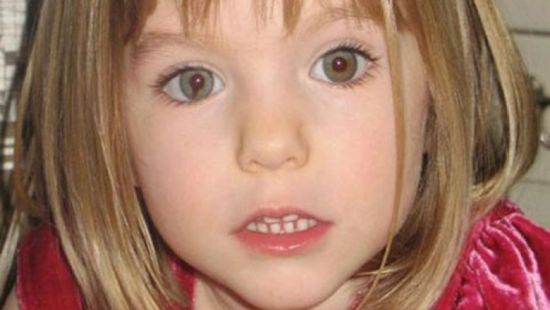|
The
gist of the latest statement from the
Met police in London in their
investigation into the disappearance of
Madeleine McCann sounded remarkably
similar to what has long been in the
public domain, but the so-called
‘quality’ press, along with the
tabloids, churned it out as if it were a
hot “new lead” and even “a
breakthrough”.
The statement appealed for further
information on “a potential linked
series of twelve crimes which occurred
between 2004 and 2010, mostly in low
season, whereby a male intruder gained
access to mainly holiday villas occupied
by UK families on holiday in the Western
Algarve”.
In four of the cases, the intruder is
alleged to have sexually assaulted five
white girls, aged between seven and 10,
in their beds.
Senior ex-police officers, led by former
detective inspector Dave Edgar and hired
by parents Kate and Gerry, looked into
sexual attacks on at least five English
girls between 2004 and 2007.
Their findings were described in some
detail by the News of the World in May
2009. Kate McCann also wrote about the
assaults in her book published in May
2012: “One of the most concerning and
upsetting pieces of information to
emerge quite early was the record of
sexual crimes against children in the
Algarve.
This discovery made me feel physically
sick. I read of five cases of British
children on holiday being sexually
abused in their beds while their parents
slept in another room. In three further
incidents, children encountered an
intruder in their bedrooms, who was
presumably disturbed before he had the
chance to carry out an assault.”
Yet even The Times last week felt moved
to report that “A sex attacker who
preyed on young British girls holidaying
with their families on the Algarve is a
key suspect in the disappearance of
Madeleine McCann seven years ago, police
said today.” Other “key” suspects over
the past few months have ranged from
Gypsies, Germans and East Europeans to
burglars and British cleaners, but
according to the latest Met statement,
witnesses described the supposedly lone
sex attacker as “having dark (as in
tanned skin) with short dark unkempt
hair”.
The Met did not identify the latest
“key” suspect, but a headline in the
Guardian the day after the Met appeal
read: “Madeleine McCann suspect died in
2009.” It called this a “revelation”
gleaned from “a source close to
Portuguese investigators.”
We had read it all before, of course.
Early last November, the Daily Mail,
among many other papers, named and
carried a photograph of a 40-year-old
black African, saying the Portuguese
police believed he may have killed
Madeleine two years before he died in a
tractor accident.
This disclosure came soon after all the
BBC Crimewatch fuss over new e-fit
images that turn out not be new at all,
depicting a man who certainly did not
look like a black African. The
Guardian’s source said the dead man had
been at the centre of Portuguese police
inquiries since they reopened the case
last October, but they had not drawn any
definite conclusions about him. He
“could” have been involved in the five
assaults on white girls - and even the
disappearance of Madeleine - but it was
no more than a “possibility”, the source
said. The Guardian also ran a story last
week headlined: “Madeleine McCann: a
breakthrough that could be devastating.”
It did not mean devastating to the widow
of the smeared African, a man with no
record of child molestation and no
opportunity to defend himself. The
Guardian explained that by identifying a
series of sex attacks, the Met Police
had made a breakthrough in its
investigation, but that based on similar
cases, “it could mean an end to hopes
that Madeleine is alive”.
It is a hope many have long abandoned.
Even Detective Chief Inspector Andy
Redwood, the senior British
investigating officer, has conceded she
may have died in the apartment.
Portuguese detectives and prosecutors,
as well as specialist British
investigators and a British police dog
handler, came to that conclusion years
ago.
The former lead detective in the
original Portugal investigation, Gonçalo
Amaral, reiterated in a recent interview
his firm belief that Madeleine died in
the apartment the same day or night she
disappeared. He claimed his
investigation was marred by high-level
political involvement, which left DNA
samples untested and key witnesses
overlooked. Amaral and his many
supporters completely reject the notion
that Madeleine was abducted - and,
indeed, there is no hard evidence to
support this theory. In using the term
‘abduction’ or ‘kidnapping’ of Madeleine
McCann, the mainstream media rarely
qualify this assertion with words such
as ‘alleged’, ‘possible’ or ‘suspected’.
Nor were such words used when Redwood
said last week: “The Metropolitan Police
Service continues to offer a reward of
up to £20,000 for information leading to
the identification, arrest and
prosecution of the person(s) responsible
for the abduction of Madeleine McCann
from Praia da Luz, Portugal on 3 May
2007.” Twenty thousand pounds!
It’s a far cry from the £2.5 million
reward offered within days of
Madeleine’s disappearance, and a drop in
the ocean compared to the millions Kate
and Gerry have since received in
donations on top of the amount the Met
has spent so far in its fruitless
search. By LEN PORTnews@algarveresident.com |


